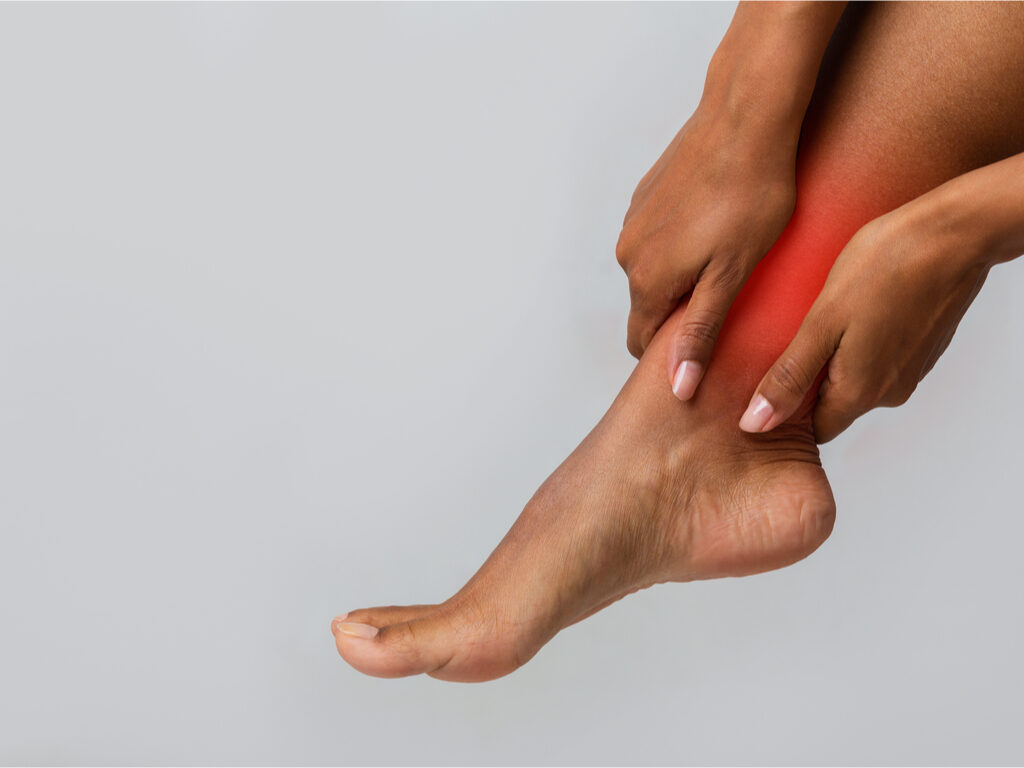Ankle Injuries
Ankle injuries can have many causes and anyone from an athlete to someone walking down the road can roll their foot and sprain their ankle.
Some ankle injuries such as stress fractures and tendinopathies are sometimes known as overuse injuries and are often caused by persistent repetitive actions in a sport or daily activity.
Rachel Miller is a highly experienced podiatrist who treats many patients for ankle injuries. Please see below if you want more detailed explanation of some common ankle injuries and their symptoms, causes and treatments.
Call 020 8348 5553 to make an appointment
Ankle Injuries
If you are in severe pain, your ankle is at an odd angle, if your foot feels numb or your toes have gone blue or white, seek immediate urgent medical help.
Three bones form your ankle joint, fibia, tiba and fibula which are connected by muscles, ligaments and tendons. An ankle injury can be categorised by what type of tissue has been damaged. A fracture can describe a break or crack in the bone, a sprain damage to the ligaments and a strain damage to muscles or tendons. An experienced podiatrist can help diagnose your complaint and give an appropriate treatment plan to aid with your rehabilitation.
Links to some common ankle injuries include:
Immediate treatment can include:
- PRICE – Protection; Rest; Ice; Compression; Elevation.
Other treatments can include:
- footwear advice
- heel pads
- self-help advice
- exercise and stretching regimes
- orthotic insoles
You might benefit from specialist treatments such as a biomechanical assessment and a bespoke orthotic insole can be prescribed as part of a treatment plan which may support and cushion the foot to reduce pain from the impact of walking and running.
Contact the Centre for an appointment on 020 8348 5553
Rachel Miller is a highly experienced podiatrist specialising in biomechanics who sees many patients for ankle injuries. Her clinic, Highgate Podiatry, is in Highgate Village, 14 Pond Square, N6 6BA, London. Clinics are held every Sunday, Wednesday and Thursday. Please contact the clinic for an appointment on 020 8348 5553. For the clinic’s address, map and directions see the Contact page and for information about orthotic insoles and biomechanics see the Biomechanics page.
Links to Services:
Links to Conditions Treated Include:
- Achilles tendinopathy
- Ankle fractures
- Ankle injuries
- Arthritis
- Back pain
- Bunions
- Corns/Calluses
- Diabetic care
- Flat feet
- Fungal toenail/athlete’s foot
- Haglund’s deformity
- Hammer toe and mallet toe
- Heel pain
- High arches
- Hypermobility
- Ingrown toenail
- In-toeing, toe walking, curly toes
- Knee injuries
- Metatarsalgia
- Morton’s neuroma
- Osgood-Schlatter disease
- Overuse injuries
- Patella tendinopathy
- Patellofemoral pain syndrome
- Plantar fasciitis
- Sever’s disease
- Sprained ankles
- Stress fractures
- Tarsal tunnel syndrome
- Toenails






